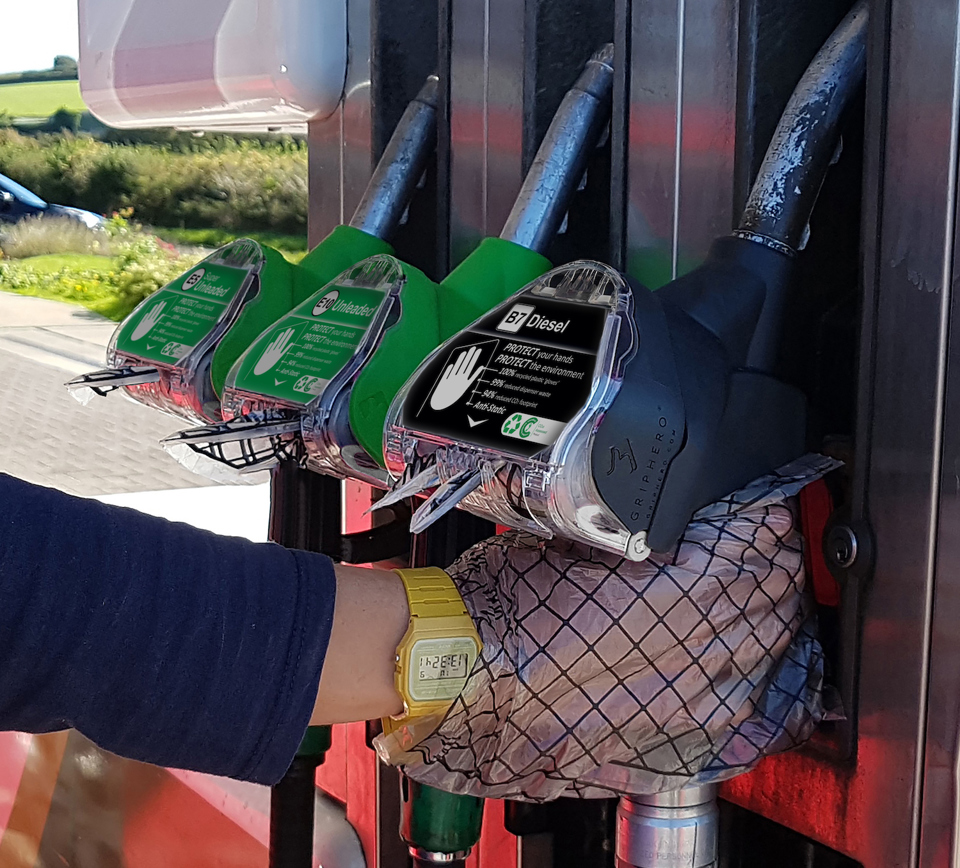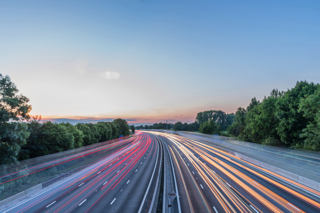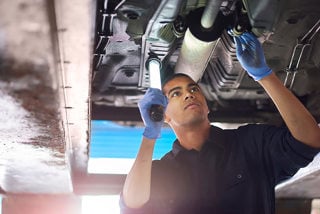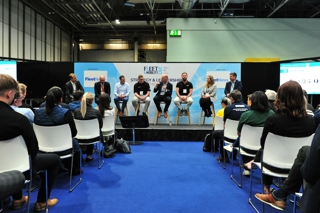Van and company car drivers are being urged to wear hand-protection when using fuel pumps as a first line of defence against new variants of Covid-19, including Omicron.
The advice comes from GripHero, which recently received an award from the Association for Petroleum and Explosives Administration (APEA) for its decision to provide its forecourt glove dispensers free to fuel stations internationally to help stem the pandemic.
It says that wearing hand-protection will significantly reduce the speed of the new Omicron variant’s transmission, with research showing that forecourts are high-transmission points.
GripHero’s recognition of the transmission risk led the business to dispatch more than 50,000 free dispensers to forecourts on five continents; helping to protect 60 million drivers against Covid-19, in addition to the 500 million motorists already protected by GripHero’s on-the-nozzle gloves, which are dispensed at the driver’s first point of contact with fuel pumps.
Oli Yeo, inventor and managing director of GripHero, said: “The Omicron Covid variant is causing huge concern among governments, scientists and health bodies.
“A return to compulsory face masks in shops and schools, as well as specific travel restrictions, shows the level of concern about the new Omicron variant’s transmissibility; its risk to health, and its potential to evade current vaccine protection.
“That needs to be taken seriously, especially when you consider that the first and least transmissible strain of Covid-19 was statistically shown to have contaminated the hands of over 50,000 UK drivers every day.”
He explained: “What’s vital for the public to understand, is that holding a fuel nozzle handle is not a light touch. Unlike pressing the buttons on a pay pad, it’s a firm grip for several minutes.
“During that time the palm and fingers come into direct contact with a surface that has been touched by hundreds of other users, many of whom could have Covid-19.”
By forming a physical barrier between drivers’ hands and fuel pump handles, GripHero’s forecourt refuelling gloves aim to break the chain of transmission, preventing viruses, biohazards, chemicals, carcinogens, diseases and illness being passed from one driver to another.
Yeo continued: “The public have the ability to protect themselves by wearing readily available forecourt hand-protection each time they fill up.
“That provides an impenetrable barrier which protects the driver from touching a surface that could be harbouring Covid-19 in its many forms, as well as other illnesses. Forecourts too have their part to play in making hand-protection readily available, ideally on each and every fuel pump.
“This one simple act could help to stop the rapidity of the spread of Omicron, which can otherwise leap hundreds of miles in a matter of hours and sit on fuel pump handles; a surface which has been proven to be over 11,000 times dirtier than the average toilet seat.”
Research from Tufts University in 2020 showed that the first and least transmissible strain of Covid-19 contaminated 3.3% of fuel pump handles.
Based on 8,500 forecourts in the UK and the daily number of drivers fuelling, that currently equates to over 50,000 drivers each day coming into contact with Covid-contaminated fuel pump handles, says GripHero.
Yeo concluded: “It’s a cliché, but it has been never more important to prevent rather than cure, especially as drivers rarely wash hands after filling up, and there are concerns about the detrimental impact of sanitisers to human and animal health.”























Login to comment
Comments
No comments have been made yet.